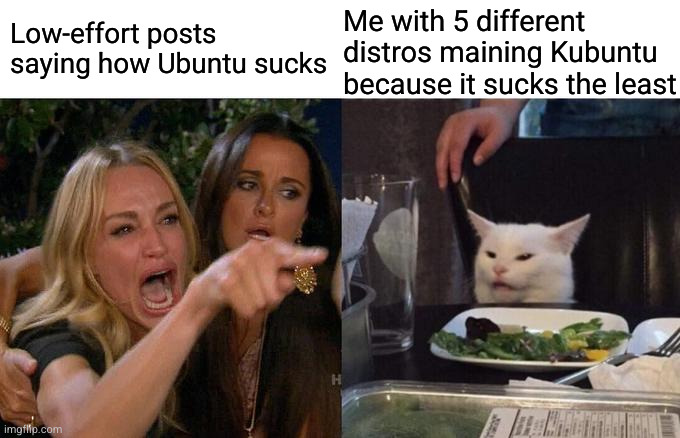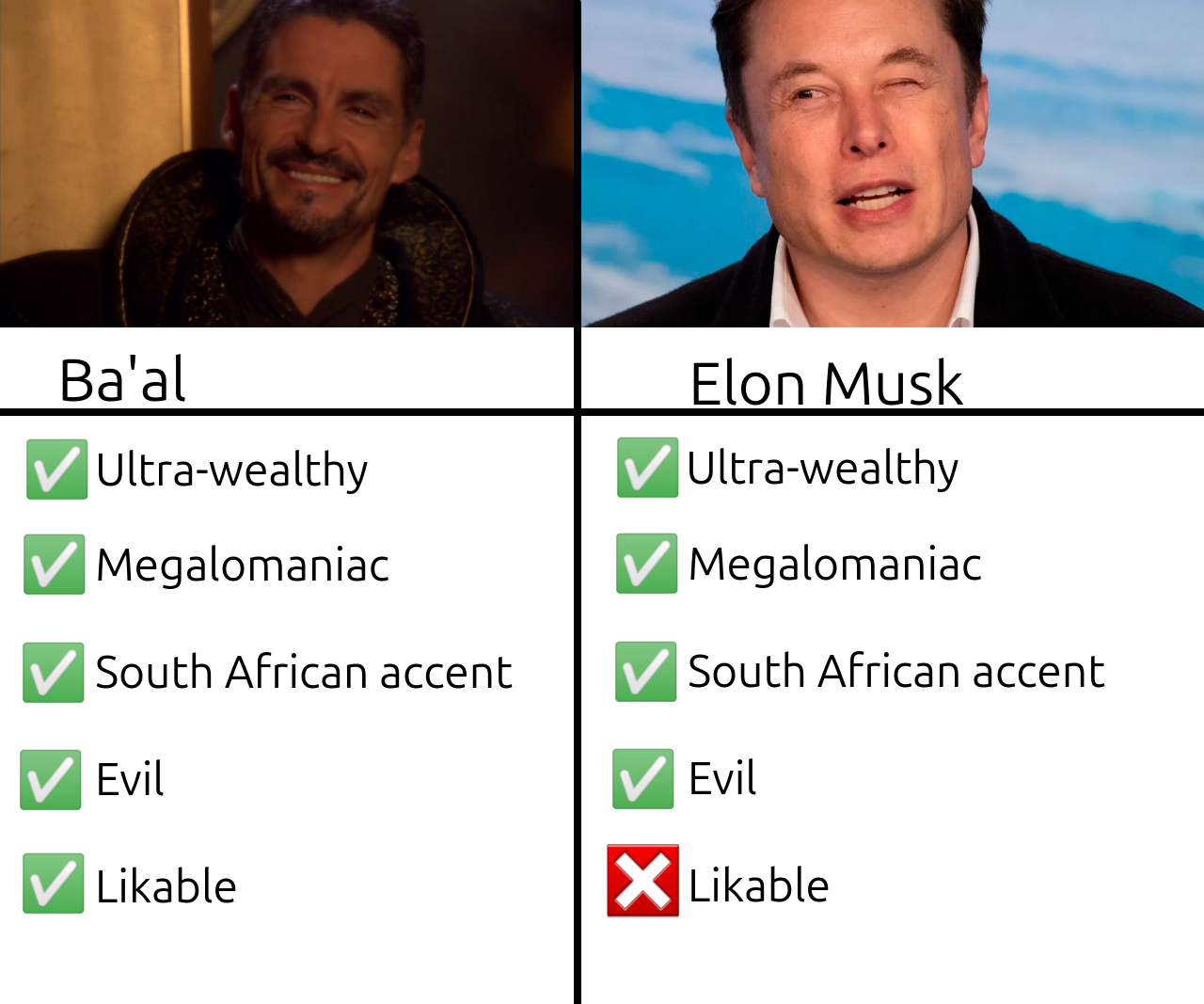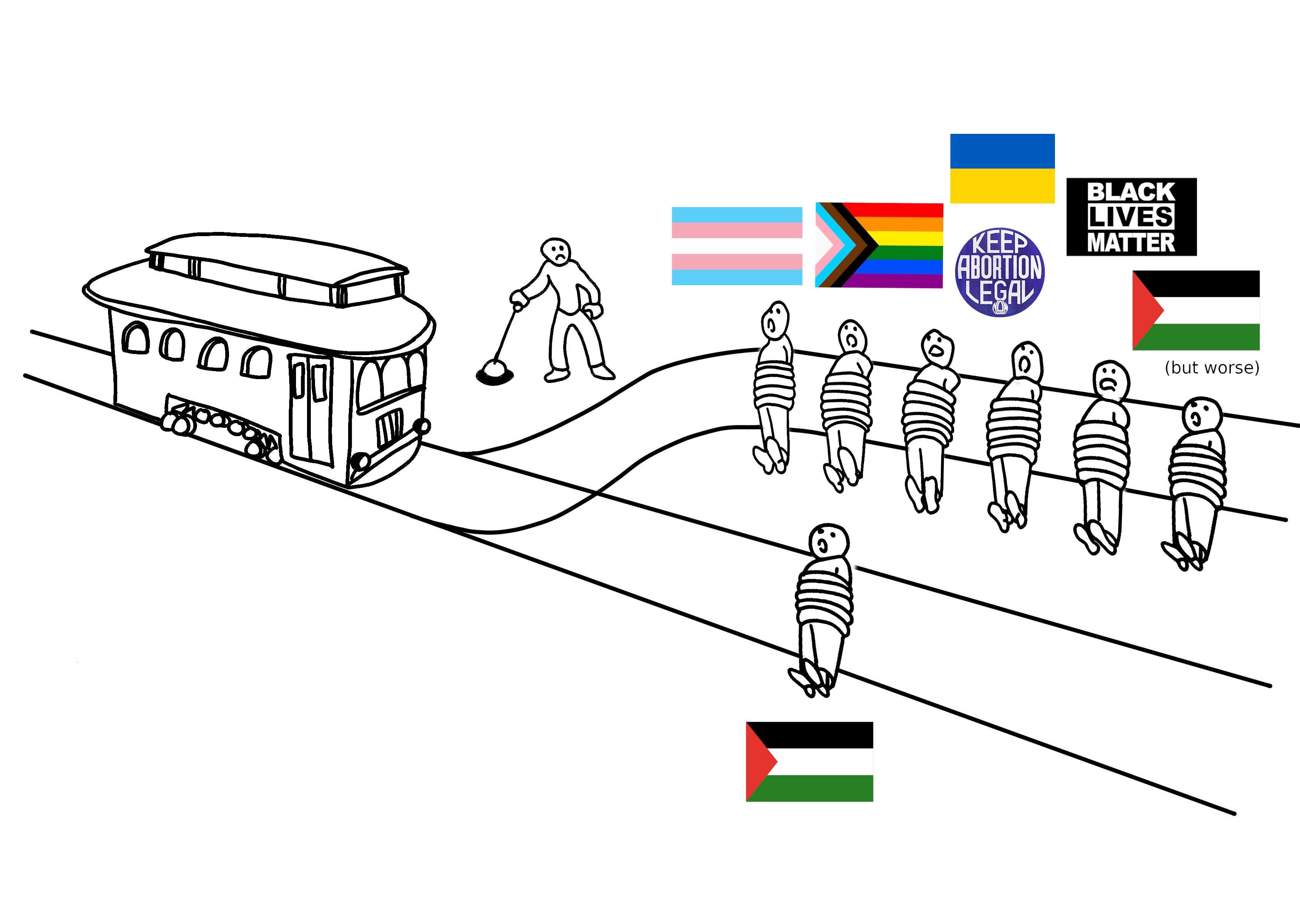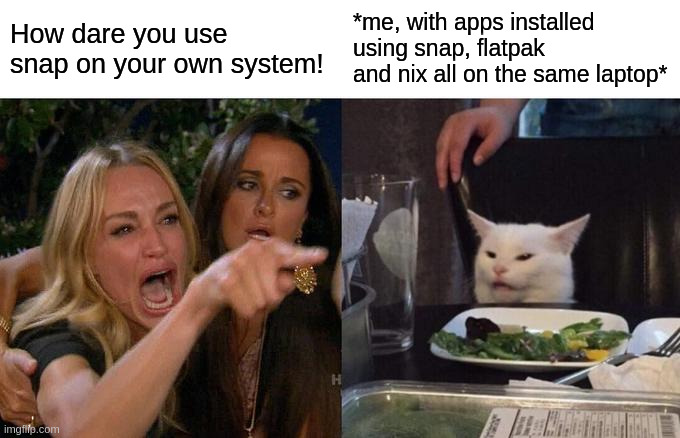Obviously they need to make exit's repr method raise a SystemExit
Get ready for surveillance cameras throughout the Arb... 🙄
rmdir ./~
I'm grateful to Microsoft for Windows 11 providing me a bunch of free machines to stick in my basement and put Linux on.
You will then think about how you're supposed to be relaxing but aren't, which will spike your anxiety.
Ohai fellow ADHD-haver!
Congrats! You have this superpower and I am jealous.
Unfortunately you can now only concentrate on things you are supposed to do. You try to watch TV and you can't follow the show because you're thinking about how you need to mop the floors. Want to read? You can't concentrate because you really should wash your windows. Your life becomes a hell of boring productivity. You lose sleep thinking about all the things you're supposed to do, including how you're supposed to be asleep by now. There is no more pleasure in life. There are no more quiet moments. There is only stuff you are supposed to do.
American food relies far too much on capsaicin for making things spicy. There are other spices too.
Most "American" foods were brought by immigrants too.
Honestly at this point if people want to try this I'm not gonna stop them.
I saw a New York Times recipe once that called for ¾ cup plus 2 tablespoons of all purpose flour.
They meant 125g.






Yeah I find it easier to just accept the terminology of natural numbers and whole numbers so we have simple names for both.